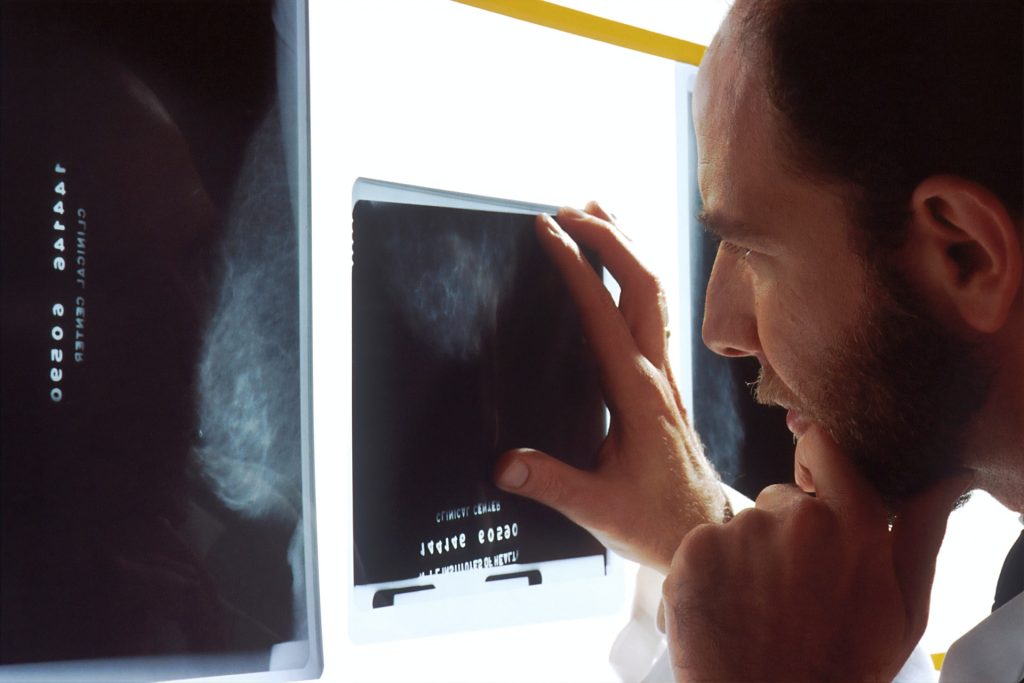‘Landmark’ Drug Doubles Progression Time of Advanced Breast Cancer

A new type of targeted medicine has shown ‘remarkable’ benefits for patients with advanced breast cancer in a major phase III clinical trial. Combined with hormone therapy, the drug capivasertib doubled the time it took for cancer to progress in people with advanced forms of the most common type of breast cancer.
Capivasertib is a potential first-in-class drug that blocks activity of the cancer-driving protein molecule AKT.
The findings, presented at the San Antonio Breast Cancer Symposium, show that capivasertib is a potential new treatment for people with oestrogen receptor (ER) positive, human epidermal growth factor receptor 2 (HER-2) negative breast cancer.
‘Effective across all patients treated in the trial’
The drug was found to be effective across all patients treated in the trial, including a group who had tumours with mutations in the AKT signalling pathway.
The phase III CAPItello-291 trial enrolled 708 women and men with an advanced form of ER-positive, HER-2 low or negative locally advanced or metastatic breast cancer.
Participants on the trial had seen their cancer recur or progress on standard hormone treatments, and the majority had also previously been treated with CDK4/6 inhibitors – drugs that block cancer cells from multiplying.
In current clinical practice, patients continue to receive fulvestrant hormone therapy, but this is often not effective, and many are left only with the option of chemotherapy, a treatment which can lead to debilitating side effects.
In the trial, adding capivasertib to fulvestrant hormone therapy doubled the median time to disease progression, from 3.6 months to 7.2 months. The treatment shrank tumours in 23% of patients, compared with 12% of patients who received fulvestrant hormone treatment plus a placebo.
Targeting the AKT pathway
The targeted drug was more effective for patients whose cancers had alterations to the AKT signalling pathway. Genetic alterations to the AKT pathway can drive both cancer’s development and treatment resistance.
Genetic alterations of the AKT pathway – revealed by tumour profiling – were present for 41% of patients on the trial. In this group treated with capivasertib and hormone therapy, it took an average of 7.3 months for the cancer to worsen compared with 3.1 months for those who received hormone therapy alone. Some 29% of patients with AKT pathway alterations who received capivasertib with hormone therapy saw their tumours shrink following treatment, compared with only 9.7% who received a placebo and hormone therapy.
Side effects from capivasertib with hormone therapy were manageable and consistent with previous studies.
More than two thirds of people with advanced breast cancer have ER-positive, HER-2 negative disease. ER-positive, HER-2 negative breast cancers have higher levels of the oestrogen receptor – allowing them to grow in the presence of oestrogen – but do not over-produce copies of the human epidermal growth factor.
Developing capivasertib
The development of capivasertib followed years of fundamental research at the Institute for Cancer Research (ICR), aimed at understanding how the AKT protein is regulated. In 2002, ICR scientists published the 3D structure of AKT and showed how the protein is activated.
Researchers then collaborated with Astex Pharmaceuticals to design small-inhibitors which would target AKT, based on its 3D structure.
In 2005, a series of prototype drug compounds discovered by the ICR and Astex was shown to have very promising activity against a range of human tumours grown in mice and was licensed to AstraZeneca. Then, in 2010, AstraZeneca announced its discovery of capivasertib, and began to develop the drug as a potential treatment for various forms of cancer.
The initial clinical development of capivasertib was centred on an early-stage trial which was led by the ICR and its partner hospital The Royal Marsden. Subsequently, phase II studies were completed in the UK in collaboration with the UK Cancer Research Network.
The trials used biomarkers that were developed at ICR to show proof of concept that the AKT protein was inhibited by capivasertib.
ICR researchers continue to study AKT biology to open up new ways of using treatments targeting the pathway.
Living well and longer with breast cancer
Trial leader Professor Nicholas Turner, Professor of Molecular Oncology at ICR London, and Consultant Medical Oncologist at The Royal Marsden NHS Foundation Trust, said:
“We are hopeful that capivasertib combined with hormone therapy will now become a new treatment option for patients whose cancer has progressed on hormone therapy plus a CDK4/6 inhibitor. We believe this new treatment could allow more women and men to live well and live longer with breast cancer.”
‘A landmark moment’
Professor Kristian Helin, Chief Executive at The Institute of Cancer Research, London, said:
“This is a landmark moment for the treatment of advanced forms of the most common type of breast cancer. It’s incredibly exciting to see a drug that was discovered following research conducted at the ICR now show remarkable benefits for patients in a phase III trial. Capivasertib could offer a completely new treatment option for these patients.
“I look forward to seeing further results from the CAPitello-291 trial, and I am hopeful that longer follow-up will show that capivasertib also extends the length of time that people survive with advanced breast cancer. But the existing findings are already strong enough for capivasertib to be submitted to regulators to be considered for approval as a new breast cancer treatment.”

